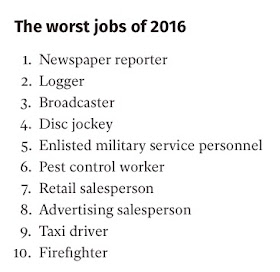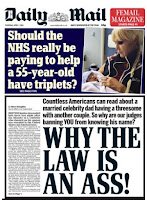The Liverpool Echo on the Hillsborough inquests' verdicts: The Liverpool Echo has covered these inquests from outset to conclusion. In that two-year period we have had a reporter in court for every single day of evidence or process. We have been privileged over 27 years to witness the strength and perseverance of The Families and it was our duty to respond in this way. There have been many villains in this story and many heroes. Above all heroes, sit the Families themselves. The inquest verdicts, we hope, will help bring to an end a 27-year story of institutionalised cover-up and shameful disregard, both for truth and for the ‘ordinary person’. What the institutions failed to recognise is that they were not dealing with ordinary people and that Liverpool is not an ordinary city."
Isabella Stone in a letter to the Guardian: "I was living in Sheffield in 1989, and bought a copy of the Sheffield Star’s special edition on the tragedy, published the following day, on Sunday 16 April, which I still have. Reading it again, in the context of the inquest verdicts, it is striking to note that the paper’s account of the disaster, written by local reporters in the hours following it, and based on eyewitness accounts, is virtually identical in its conclusions to that of the jury’s verdicts 27 years later. The front page explicitly states that 'Liverpool fans were not to blame, but the victims'.”
Andy Burnham in the House of Commons, as reported by the Mirror: "Let me turn to collusion between police and the media. The malicious briefings given in the immediate aftermath were devastatingly efficient. They created a false version of events which lingered until yesterday. No-one in the police or media has ever been held to account for the incalculable harm they caused in smearing a whole city in its moment of greatest grief."
The Sun in a leader: "The supporters were not to blame. But the police smeared them with a pack of lies which in 1989 The Sun and others in the media swallowed whole. We apologised prominently 12 years ago, again four years ago on the front page, and do so unreservedly again now. Further, we pay tribute to the admirable tenacity of the friends and relatives over so many years on behalf of the 96 who died."
Kelvin MacKenzie in a statement, reported by the Independent: “As I have said before, the headline I published was wrong and I am profoundly sorry for the hurt caused. Clearly, I was wrong to take the police’s version of events at face value and it is a mistake I deeply regret.”
The Times in a statement via Twitter: “The Times led with Hillsborough coverage on all our digital editions throughout the day. This morning we have covered it extensively in the paper with two spreads, the back page, a top leader and an interactive on the victims. We made a mistake with the front page of our third edition, and we fixed it for the second edition.”
Freelance journalist Martin Fletcher in a letter to MailOnline journalist Euan McLelland, as reported by the SubScribe blog: "Good morning, Euan. I'd like to know whether you are intending to pay me for the use/theft of my exclusive story on British cemeteries in Iraq by Mail online yesterday? I am a freelance journalist. I paid my way to Iraq. I did the research. I put in the time and energy. I took the risks of visiting that unstable country. How dare you steal my work and pass it off as your own? How can you possibly describe yourself on your website as a 'driven, proactive and reliable young media reporter'. Are you completely without shame or pride?"
Guardian editor Kath Viner on abusive online comments: "As editor, I think we need to act more decisively on what kind of material appears on the Guardian. Those who argue that this is an affront to freedom of speech miss the point. That freedom counts for little if it is used to silence others. When women and minorities don’t feel able to speak their mind for fear of insult, threat or humiliation, no such freedom exists."
Nick Cohen on the Spectator blog blasts Boris Johnson for his attack on President Obama: "Boris Johnson is a former editor of this newspaper, and as such has the right to be treated with a courtesy Spectator journalists do not normally extend to politicians who do not enjoy his advantages. I am therefore writing with the caution of a lawyer and the deference of a palace flunkey when I say that Johnson showed this morning that he is a man without principle or shame. He is a braying charlatan, who lacks the courage even to be an honest bastard, for there is a kind of bastardly integrity in showing the world who you really are, but instead uses the tactics of the coward and the tricks of the fraudster to advance his worthless career."
Society of Editors' executive director Bob Satchwell after the 2016 World Press Freedom Index shows the UK ranked 38th - down four places since 2014: “The UK’s position on the world press freedom list is a disgrace. This is the country that is supposed to be the mother of democracy and claims to have a free, unfettered media. No wonder journalists across the Commonwealth and the wider world express their dismay. Their governments cite the British example as an excuse for introducing and enhancing their own draconian restrictions on the media. This should be a worry for our politicians who so often proclaim their belief in a free press and the public who need it.”
Society of Editors' executive director Bob Satchwell after the 2016 World Press Freedom Index shows the UK ranked 38th - down four places since 2014: “The UK’s position on the world press freedom list is a disgrace. This is the country that is supposed to be the mother of democracy and claims to have a free, unfettered media. No wonder journalists across the Commonwealth and the wider world express their dismay. Their governments cite the British example as an excuse for introducing and enhancing their own draconian restrictions on the media. This should be a worry for our politicians who so often proclaim their belief in a free press and the public who need it.”
Rod Liddle in the Sunday Times [£]: "To read The Guardian last week, you’d have thought the undoubtedly talented Prince was a hybrid of Mozart and Martin Luther King. He was not. And David Bowie was a very good writer of pop songs, not a political icon who ushered in a new era of freedom for the world’s LGBT communities. None of this stuff used to happen, but the baby-boomers — who have not really grown up and yet run the media — revere their pop stars. And the pop stars are dying, either because they are quite old or because they have not lived lives of which the late Jesus Christ would have approved."
The Mirror's Peter Willis on jamming with Prince: "'Stop! Stop! Stop!' he shouted and slammed his hand down on the piano. Laughing, he added: 'Have you ever seen The Apprentice on TV? Cos You're fired!' I protested. Let's take it from the top again, I suggested. But it was too late. I'd blown it. Still, there can't be many people who've been hired and fired by Prince, all in the space of two minutes."
[£]=paywall
Keith Perch speaking at a meeting in the House of Lords about the rapid decline in the number of regional journalists in the last decade, as reported by Press Gazette: "The scale of the problem is always under stated. I think as much as 80 per cent of the jobs have disappeared. People look at newspaper closures, but the biggest change is that daily newspapers used to have loads of editions which were geographically based. They were effectively producing lots of daily newspapers for smaller towns. The Derby Telegraph used to have six editions all with journalists based in their own offices."
[£]=paywall














































